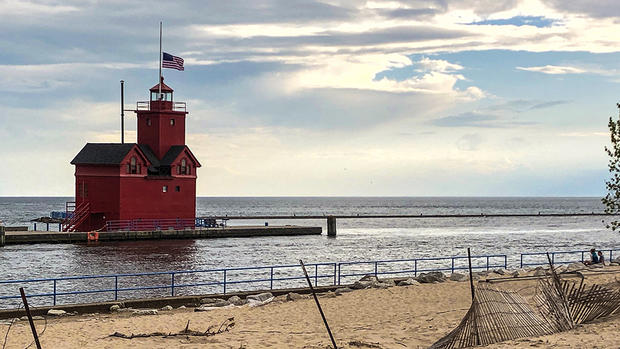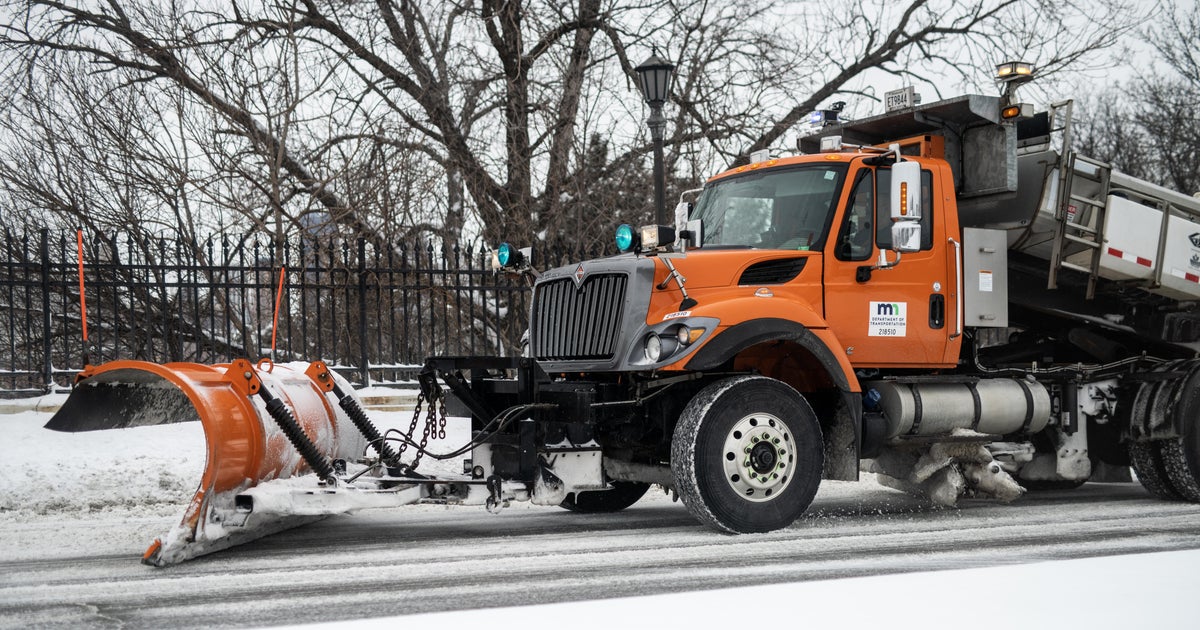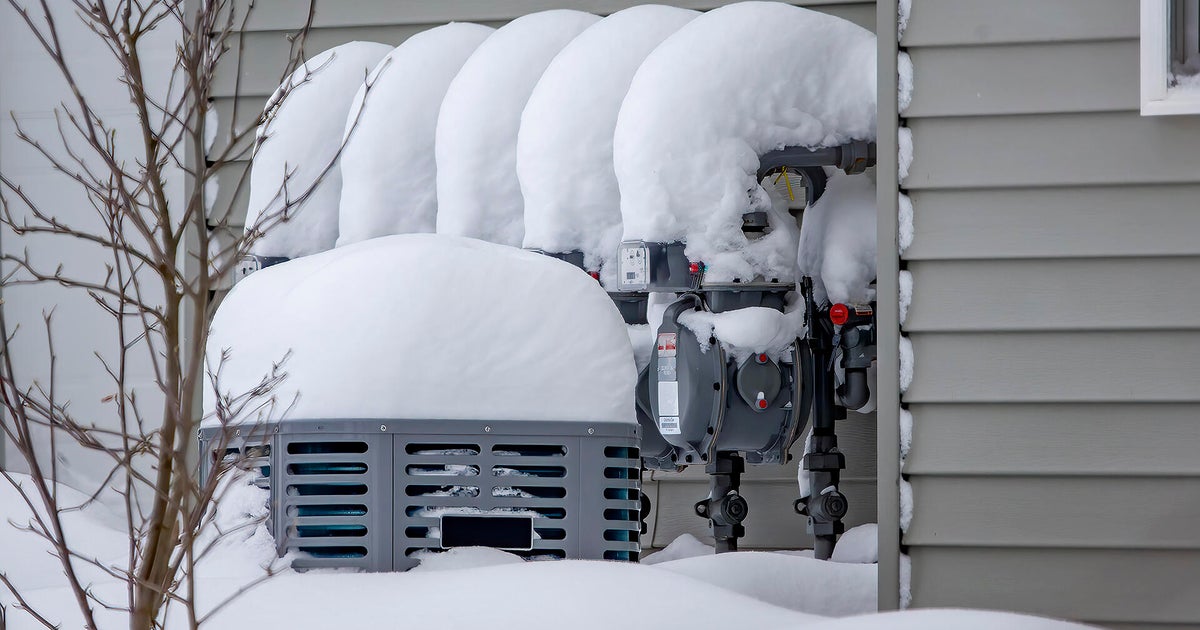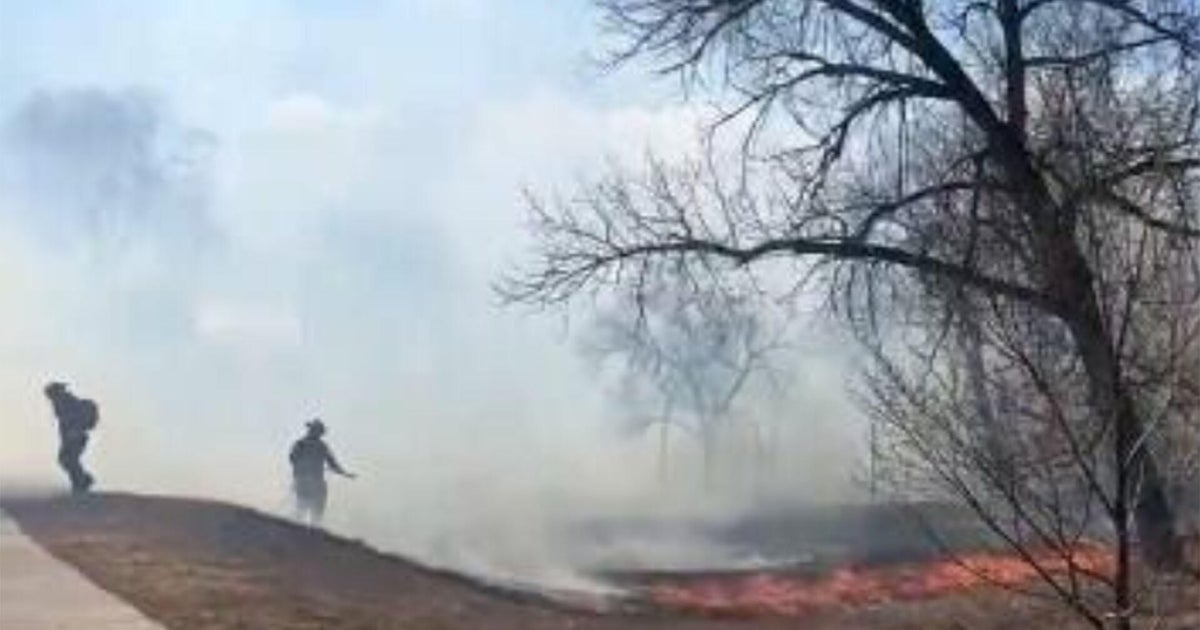Things To Know Before Enjoying Michigan's Great Outdoors
CBS Detroit - Summer is upon us! As many head up north to enjoy Michigan's many wild and natural spaces, and our Great Lakes, the Michigan Department of Natural Resources has some tips to make sure we do it safely.
COVID-19 has changed the landscape in which we function now. The DNR has opened state park campgrounds with new health and safety protocols in place. As well as other measures in parks to ensure people stay safe. It is our job to take protective measures to protect ourselves and others. Use your own best judgment to manage your risk when going out in public spaces.
- First off if you feel sick, stay home. Don't run the risk of getting others ill. Follow up with your healthcare provider if your symptoms are the same or similar to COVID-19.
- Stay at least six feet away from those who are not part of your household. Wear a face mask or other face-covering when indoors. Some people have immune systems that are more susceptible to catching things.
- The DNR asks when using state parks and associated facilities, to follow the guidelines. They are there to protect us all, including park workers. That includes sanitation guidelines, guidelines for restrooms, shower facilities, etc. Some of the rules they say may vary by facility. One example they give is encouraging people to pay via debit or credit card, to limit the exchange of money.
BOATING SAFETY
The Great Lakes are experiencing record high water levels. This means that areas closer to shore that was once dry land could be now covered in water. Submerged docks, pylons, rocks, or increased shallower water could be hazardous to your boat or its prop. Check your navigational charts, and if you do venture onto the Great Lakes, have a VHF marine radio on board in case you need assistance.
Companies like BoatUS offer membership coverage, much like AAA except on the Great Lakes. If you become stranded for whatever reason, they will come and get you as well as offering other member services. While there may be other companies out there who offer similar services, we advise you do your own research in figuring out what works for you.
The U.S. Coast Guard has guidelines on what recreational watercraft must have on the waterways. These may be enforced by inspections when underway by the USCG, DNR, Sheriff, or local police. You can have your boat inspected, which is offered as a free public service by the United States Coast Guard Auxiliary and United States Power Squadrons®, volunteer organizations dedicated to assisting the U.S. Coast Guard in promoting boating safety. Other federal and state agencies may also conduct these Vessel Safety Checks. (Find out more at www.safetyseal.net.) They will inspect your boat for the necessary safety items, and if your vessel passes, you will be given a sticker to affix to the side of your boat. Which may avoid you getting stopped for safety inspections when underway in the future.
Personal Floatation Devices. While we covered safety guidelines for boaters, the number one thing you should have on any watercraft are life jackets or personal floatation devices for everyone on board and be readily accessible. It's advisable that small children and adults who have health or mobility restrictions always wear a life jacket when underway. Also for larger pleasure craft, have some sort of floatation device tied to a rope in case a person goes overboard. Remember when out on open water, water temperatures could be much cooler, and hypothermia can set in for prolonged exposures.
Signaling Devices. Having flares or flare guns is a good way to signal to others when in distress. Inspect them regularly to ensure they're in good working order. Also, have a horn to draw attention. There are lights you can buy that will flash SOS in morse code for use at night. The requirements for these vary by boat type but are good to have regardless.
First Aid Kit. You never know what you may encounter when out on the water. Whether a small cut needing a band aid, or someone injured seriously from hitting a large wave. Having a good first aid kit may also make you a hero to someone else in distress.
Fire Extinguishers. On any boat with a motor, or when you have flammable liquids nearby, a fire extinguisher is a must. Also, boats with engines must have a ventilation system to vent flammable fumes and gasses. Check the USCG regulations for more information.
Navigation Lights. If you plan to be underway at night it's required to have approved navigation lights so others can see you.
Know the Rules! The USCG has guides for boaters when traveling on waterways. Just like driving down the road, rivers and lakes have rules too. These rules apply to who has right of way, how to pass other boats, no-wake zones, and following navigational aids and channel markers.
Drinking and Boating Don't Mix - The DNR will have an expanded presence on our waterways as part of Operation Dry Water to promote sober boating now through the fourth of July. Just as you would designate a driver before going out on the town, make sure your captain stays sober too! According to the DNR, in Michigan, a Boating Under the Influence (BUI) charge is a misdemeanor offense. A person is operating illegally when their blood alcohol content is .08 percent or above. U.S. Coast Guard 2019 data says that 70% of boating deaths occurred on boats where the operator did not receive boating safety instruction. Anyone born on or after July 1, 1996, must have a valid boater safety certificate to operate a motorized vessel in Michigan. People born on or after Dec. 31, 1978, must have a boater safety certificate to operate a personal watercraft (such as a SeaDoo or JetSki). The Michigan DNR offers boater safety education as an online course. Go to Michigan.gov/RecreationalSafety for more information.
WATER SAFETY
With increased water levels, another thing to watch out for is increased currents. Swimmers and kayakers could find their usual spots might be more hazardous. Whether rip currents or outlet currents from rivers, knowing how to spot them and how to swim out of them is important. They can take people far out and overwhelm experienced swimmers.
The DNR has a color-coded flag system of red, yellow, and green that may be present on beaches depending on conditions. Don't swim in waters over your ability. Always supervise kids, give them flotation devices and stay within an arm's reach of them, they do not have strength adults have. Never swim alone, all swimmers should have a buddy... who ideally is a better swimmer.
Finally when at the beach, don't forget to hydrate yourself when in the hot sun and to wear sunscreen and bug repellant if necessary. Watch your alcohol consumption as it can dehydrate you. Too much alcohol could also impair your judgment.
Some inland lakes might be prone to swimmer's itch, and there may be postings if there are problems a particular year. Swimmer's itch is a small parasite that usually lives in the warmer waters around the shore, which can burrow into your skin causing an itchy rash. It isn't contagious, and humans are not good hosts so they soon die. Wearing a waterproof sunscreen on all exposed areas of skin will help repel them. Avoid shallow areas around the shore or shallow tide pools where the water is warmer. Slightly deeper cooler water is better. Especially if you see evidence of waterfowl in the area. As the parasite comes from the feces of ducks, geese, and other animals in certain waterways.
FIRE SAFETY
Dry weather means a higher risk of starting wildfires. Check the area you are traveling for any burn restrictions. When traveling down the road in forested areas or grasslands, a lit cigarette thrown out the window could spark a fire under the right conditions. When having a campfire, do so only in a fire pit. When finished douse the fire with water, stir and douse again. Covering hot embers with dirt can help them from getting airborne.
Use only natural wood for your fires, to avoid toxic fumes from sources things like paint or treated lumber.
Don't transport firewood over long distances. This helps to stop the spread of invasive insects that have caused diseases to our forests.
When burning debris in your yard, local regulations may require a burn permit.
THINGS TO KNOW
A Michigan State Recreation Passport is needed for entry in all parks, campgrounds, and boat launches. While you can buy these at any DNR office, the easiest way is to check the passport option when you renew your license plates. Doing so helps fund the many parks across our state for all to use.
Anyone 17 or older must have a fishing permit and follow all guidelines laid out. Persons under 16 can fish without a permit, but must follow all guidelines as well.
If you plan to hit the trails, all vehicles must have an ORV sticker. Some areas like sand dunes have other regulations vehicles might have as well. It's always best to call or check the guides.
Pack the right gear PPE gear, hand sanitizer, first aid, and supplies you will need for your trip. This will make your Michigan adventure much more enjoyable.
© 2020 CBS Broadcasting Inc. All Rights Reserved. This material may not be published, broadcast, rewritten, or redistributed.








